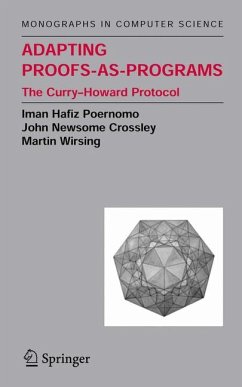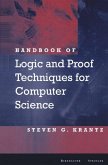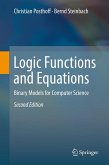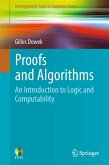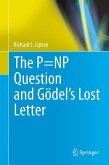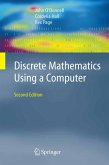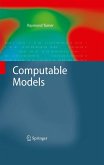This monograph details several important advances in the direction of a practical proofs-as-programs paradigm, which constitutes a set of approaches to developing programs from proofs in constructive logic with applications to industrial-scale, complex software engineering problems. One of the books central themes is a general, abstract framework for developing new systems of programs synthesis by adapting proofs-as-programs to new contexts.
Dieser Download kann aus rechtlichen Gründen nur mit Rechnungsadresse in A, B, BG, CY, CZ, D, DK, EW, E, FIN, F, GR, HR, H, IRL, I, LT, L, LR, M, NL, PL, P, R, S, SLO, SK ausgeliefert werden.

